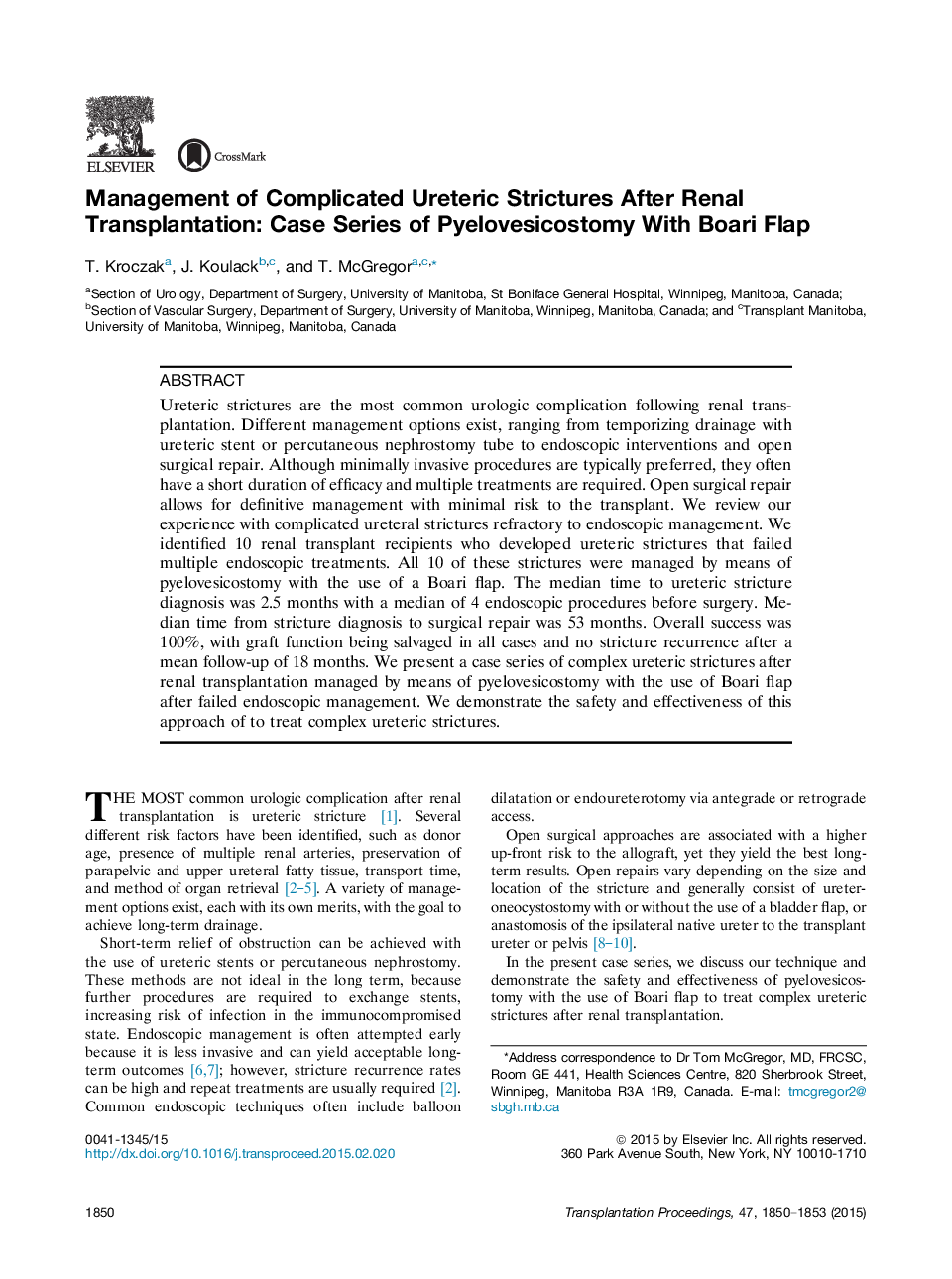| Article ID | Journal | Published Year | Pages | File Type |
|---|---|---|---|---|
| 6247213 | Transplantation Proceedings | 2015 | 4 Pages |
Abstract
Ureteric strictures are the most common urologic complication following renal transplantation. Different management options exist, ranging from temporizing drainage with ureteric stent or percutaneous nephrostomy tube to endoscopic interventions and open surgical repair. Although minimally invasive procedures are typically preferred, they often have a short duration of efficacy and multiple treatments are required. Open surgical repair allows for definitive management with minimal risk to the transplant. We review our experience with complicated ureteral strictures refractory to endoscopic management. We identified 10 renal transplant recipients who developed ureteric strictures that failed multiple endoscopic treatments. All 10 of these strictures were managed by means of pyelovesicostomy with the use of a Boari flap. The median time to ureteric stricture diagnosis was 2.5 months with a median of 4 endoscopic procedures before surgery. Median time from stricture diagnosis to surgical repair was 53 months. Overall success was 100%, with graft function being salvaged in all cases and no stricture recurrence after a mean follow-up of 18 months. We present a case series of complex ureteric strictures after renal transplantation managed by means of pyelovesicostomy with the use of Boari flap after failed endoscopic management. We demonstrate the safety and effectiveness of this approach of to treat complex ureteric strictures.
Related Topics
Health Sciences
Medicine and Dentistry
Surgery
Authors
T. Kroczak, J. Koulack, T. McGregor,
